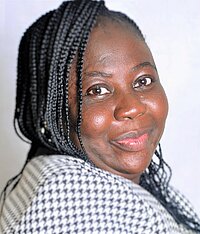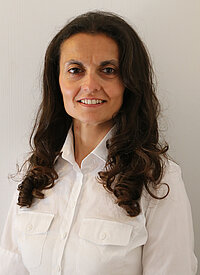Group 5
Comparative Group 5: Gender influence on innovative teaching methods in adult education
Innovative teaching methods ∙ gendered instruction
Sex equity, inclusion of all learners and gender mainstreaming in classroom interaction is integral to success of the provision of different kinds of adult education ranging from language classes to skills acquisitions in the formal and non formal classes. The incorporation of every category of learners in the learning experiences is subject to a lot of circumstances, the process and priorities formulated by international, regional, national and locally endorsed policies. The application of these gendered based policies are also subjected to interpretation as suitable for the location in which it is being applied. Quoting from Darkenwald and Merriam (1982) in the Informal Education Homepage, Smith, 2007, mentioned that “Adult education is concerned not with preparing people for life, but rather with helping people to live more successfully. Thus if there is to be an overarching function of the adult education enterprise, it is to assist adults to increase competence, or negotiate transitions, in their social roles (worker, parent, retiree etc.), to help them gain greater fulfilment in their personal lives, and to assist them in solving personal and community problems”.
From this background, the influence of gender on teaching methods/strategies in the AE provisions of the local centres will be considered. The innovativeness in the case studies and success stories and challenges from each country represented in the group will also be compared to policies on gender and education in the mega, macro and micro level.
Comparative research question
1. Which gender needs do frameworks (policies) for programmes meet?
2. Which teaching methods are adopted in the programme for inclusion of all participants and how innovative are they in achieving equity?
Context of comparison
The contexts of comparison will include concrete programmes as such those provided in Gender centres and other gendered programme. These programmes are offered under different names and centres (including NGOs) in various countries. Students’ essays and the practitioners’ cases will be based on experiences and practices.
We will categorise the essays and cases presented in the group under the international policies adapted from mega organisations, regional and national regulations and case studies of implementations at the local adult education centres.
Categories of comparison
(selection for the transnational essay is based on participants research interests)
1. Policies for supporting gender mainstreaming and sensitivity in adult education classes
2. Resources (human, finances, material) for programmes
3. Provisions (teaching methods, didactics, programmes, participations) of adult education programmes towards gendered responsiveness.
Good practices
1. How do you implement gender promoting programmes in your practice?
2. What teaching methods do you adopt for teaching your target group and how innovative are they?
3. How do you evaluate and measure relevance, teaching processes and active participation in your centres?
References
Hugo, J. M. (1990). Adult education history and the issue of gender: toward a different history of adult education in America. Adult Education Quarterly, 41(1), 1-16.
Smith, M. K. (2007). Introducing Adult Education. The Informal Education Homepage. Retrieved May 08,2018, from http://www.infed.org/lifelonglearning/b-adedgn.htm
Simeon-Fayomi, B. C. & Fedeli, M., (2014). Across my bridge: The experienced perception of two female adults of the European and Africa cultures in a didactic situation. Paper presented at 2014 Commission of International Adult Education (CIAE), (pp. 246-259). Charleston, N.C., U.S.A.

Dr. Bolanle Clara Simeon-Fayomi , Obafemi Awolowo University, Ile-Ife, Nigeria
Dr. Simeon-Fayomi Bolanle Clara teaches and researches into the areas of Innovative Teaching Methods, Soft skills & Employability/Entrepreneurship Education, Continuing Education & Training, and recently into Displaced /Refugees persons Education and Military Education. She is a tenured prima facie qualified Associate Professor of 2016 in Obafemi Awolowo University, Ile-Ife, Nigeria. A scholar of the First Data Western Union of AAU/IAA, USA and Fellow of the Carnegie Corporation of New York/ Linkages, Obafemi Awolowo University, Ile-Ife, she was awarded the prestigious Bavarian Government Fellowship of the Siebold-Collegium-Institute for Advanced Studies (SCIAS) of the University of Wurzburg and serves as visiting professor to several Universities. She is presently a fourth year tenured executive member of the Nigerian National Council for Adult Education (NNCAE).

Dr. Valentina Guerrini, University of Florence, Italy
Valentina Guerrini is Postdoc in Educational Sciences and temporary Professor at Department of Education and Psychology at University of Florence. Her research field is general and social education, in particular her research interests are oriented to the management of differences (ethnic, cultural, gender) and equal opportunities in education and in the world of work and to teachers’ training from an international perspective. She participated with presentations to many national and international conferences and has several publications in the pedagogical reviews of the sector.


